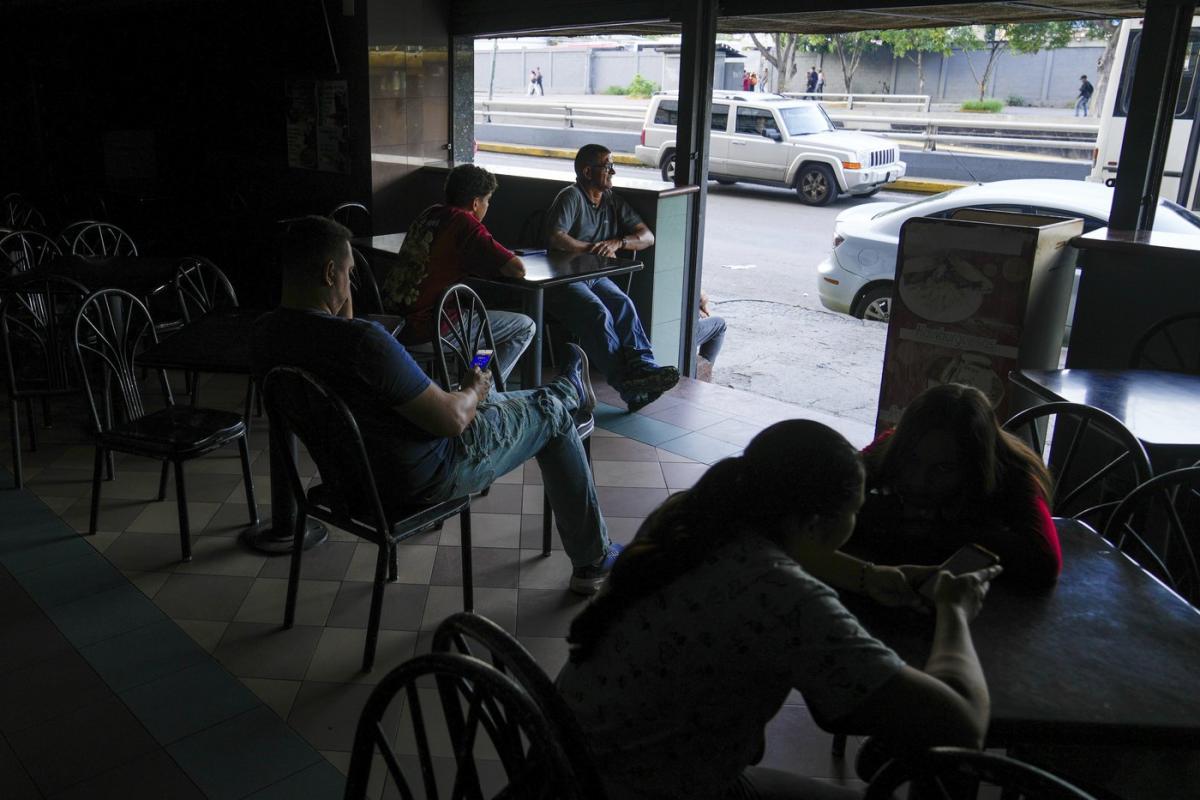CARACAS, Venezuela (AP) — Venezuelans spent most of Friday in the dark as a major outage knocked out power in the capital, Caracas, and several states.
President Nicolás Maduro’s government blamed the outage, which it said began about 4:50 a.m., on “electrical sabotage.”
“Nobody will take away our peace and tranquility of the Venezuelan people,” Freddy Nanez, the communications minister, wrote in a message shared with journalists on Telegram.
Nanez said in a voice message on Telegram that all 24 of Venezuela’s states had been at least partially impacted. He characterized the outage as a “desperate” attempt by Maduro’s opponents to violently oust the president.
“The entire national government has been activated to overcome this new aggression,” he said.
By nightfall, power had been restored in many parts of the capital after a day of sporadic outages. Maduro, in a Friday evening appearance on state TV, thanked Venezuelans for their patience after a chaotic day that saw businesses shutter, hospitals rely on backup generators and the closure of Caracas’ subway leave tens of thousands of people stranded.
Venezuela in 2019, during a period of political unrest, suffered from regular power outages that the government almost always blamed on its opponents, but that energy experts said were the result of brush fires damaging transmission lines and poor maintenance of the country’s hydroelectric infrastructure.
Many of the energy problems have subsided as the South American nation’s economy has stabilized, high inflation has eased and a de facto dollarization has reduced shortages of imported goods.
Still, following last month’s contested presidential election, officials are quick to blame opponents for even minor disruptions. That was the case on Tuesday, when a brownout affected Caracas and several central states.
“This is a constant strategy of the opposition, the enemies of this country, to impact the population,” Diosdado Cabello, the newly appointed interior minister who is believed to be the second most powerful man in the country, said after the earlier outage.
Residents of the capital were taking Friday’s disruption in stride. Traffic during the normally busy rush hour was lighter than usual and some people complained about being unable to communicate with family members due to a lack of cellphone service.
Alejandra Martinez, a 25-year-old salesclerk, said she noticed the power went out when a fan stopped working. “I thought the power would come back and I went back to sleep,” she said while trying to catch a bus to work as dawn broke over Caracas. “But when I woke up, I realized it was an outage.”
Venezuela’s power grid relies heavily on the Guri Dam, a giant hydroelectric power station that was inaugurated in the late 1960s. The electrical system has been burdened by poor upkeep, a lack of alternative energy supplies and a drain of engineering talent as an estimated 8 million Venezuelan migrants have fled economic misery in recent years,
The Associated Press

